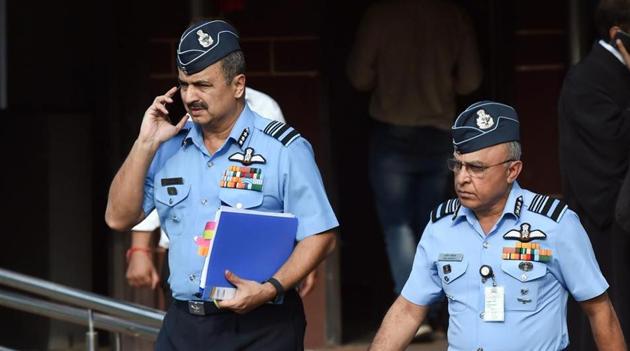Matters of public interest must follow due process
To give a go-by to those processes in the name of “efficiency” or quick decision-making serves neither the cause of efficiency, nor the cause of truth
Over the last few days and weeks, the Rafale hearing in the Supreme Court has been the subject of much discussion and debate. The apex court’s hearing of the case has raised questions over whether, and to what extent, the government’s entering into defence deals can be the subject of judicial review; and matters came to a head last week when, in the course of the hearing, the Chief Justice summoned officers from the Indian Air Force to court, to “interact” with them.

This action of the Chief Justice has raised eyebrows, with some people questioning whether it undermines the principle of civilian supremacy. The mere fact that the officers of the Indian Air Force were asked to participate in the proceedings, however, is not a matter of constitutional concern. In India, no individual is above the law, and if it is the Court’s view that the testimony of Air Force officers is indispensable to deciding the case fairly, then the Court is entitled to ask them to participate in the proceedings.
What is of concern, however, is the manner in which the Court did so: it is reported that the Chief Justice and his brother judges had an oral “interaction” with the officers, putting a series of questions to them, and hearing their answers. To understand why this is a problem, we need to begin by understanding that India follows an adversarial system of justice: the determination of “truth” in a courtroom is based upon a clash between two rival narratives, adjudicated by the court. For this reason, there is a very detailed process — contained in the Evidence Act — that is set out for determining when, how, and what kind of evidence a court can take into account when determining “truth”.
At the heart of this process is the principle of cross-examination: a witness’ account, ultimately, cannot be deemed worthy of credence until the other side’s advocate has had a chance to test it in all its details, both for internal coherence, and for how well it matches with external, known facts. Through a cross-examination, the witness has a chance to defend her version against the most sustained and intensive questioning, while the opposing side has every opportunity to demonstrate why the account should not be believed. It is only after having been put through the rigours of the cross-examination, that a witness’ account can be said to be trustworthy, and can a court place reliance upon it.
An “interaction” of the kind that the court conducted with the Air Force officers during the Rafale hearing does not come anywhere close to the kind of cross-examination that the adversarial legal system requires (and, unsurprisingly, people have already alleged that the court was “misled” during the interaction). Technically, the testimony of the Air Force Officers — who were not sworn in as witnesses, and did not (it appears) submit a written affidavit — has no standing in law; it seems, however, that the Supreme Court will rely upon this “interaction” in at least some relevant way while coming to its decision. That, however, means that the court will effectively be bypassing the core principles of the Evidence Act and the adversarial legal system, in coming to its decision.
And this is not simply hair-splitting: rules of evidence and process matter because they serve the vital function of ensuring that judicial discretion is cabined and constrained within a defined set of parameters — parameters that have stood the test of time. It is this that separates the proceedings of a constitutional court from that of a durbaar, where the monarch decides who gets to be heard, how truth is to be determined, and how justice is to be administered. It is these rules that, ultimately, constitute the fundamental distinguishing feature between a government of laws and a government of men.
Particularly, in matters of great public interest — where the allegation is about government corruption in defence deals — following due process to the letter matters even more than in ordinary cases. The court did not have to hear the Rafale case, and it did not have to hear from the Air Force officers. However, once the court did take those two decisions, then it was incumbent upon it to ensure that the testimony it was going to be relying upon met the basic threshold requirements of the legal process. To give a go-by to those processes in the name of “efficiency” or quick decision-making serves neither the cause of efficiency, nor the cause of truth.
Gautam Bhatia is an advocate in the Supreme Court
The views expressed are personal






